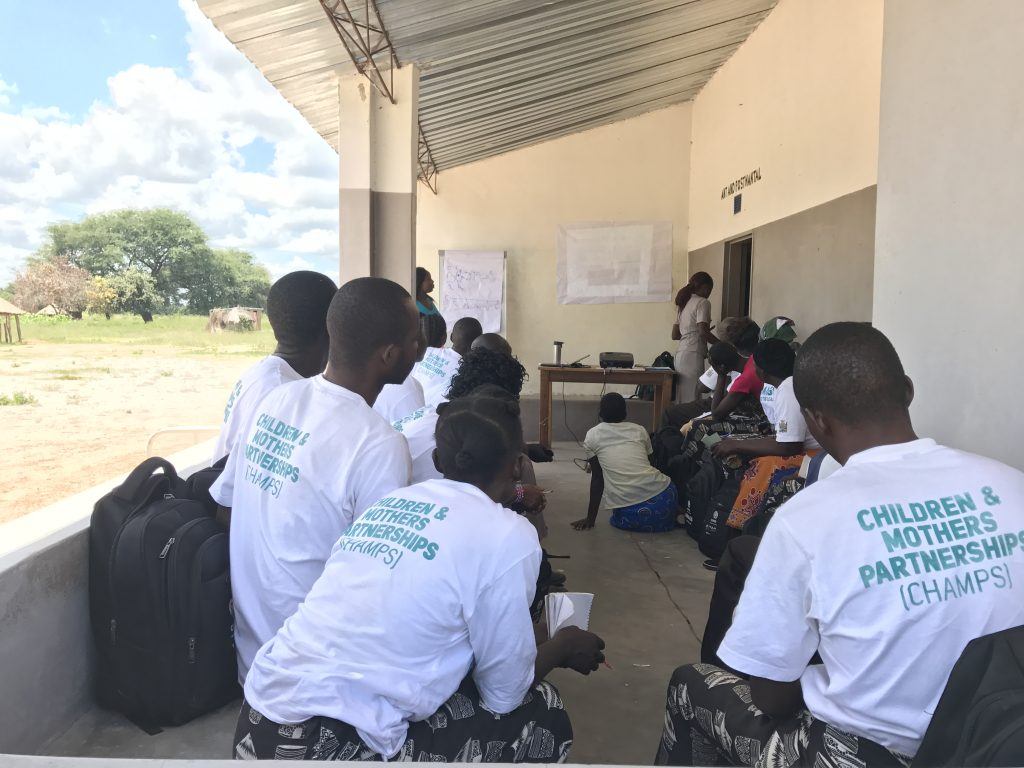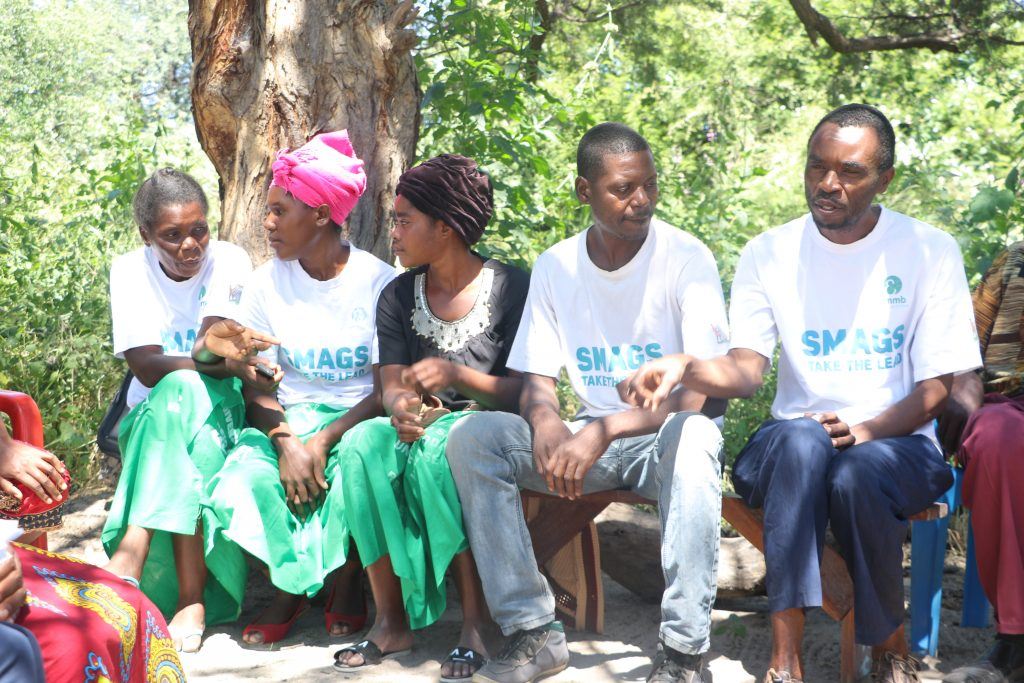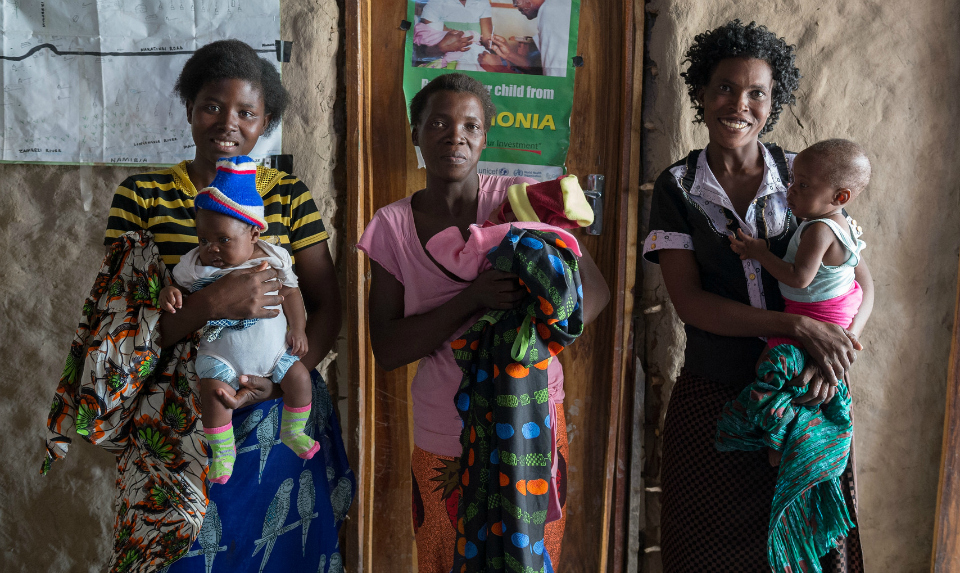Act Instead of React: The Impact of Community Health Workers
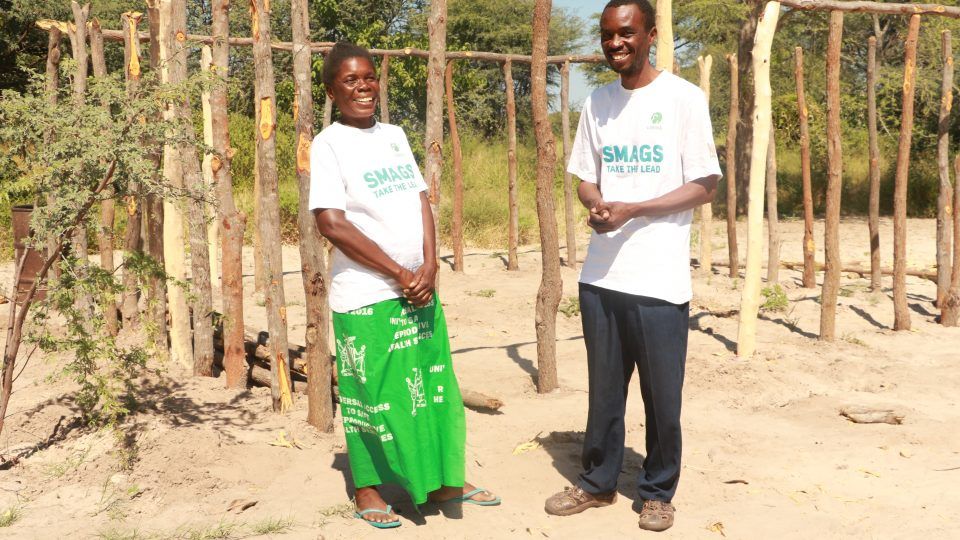
Community Health Workers (CHW) are behind everything we do. CMMB recruits and trains these committed members of the community, equipping them the knowledge and tools they need to provide care to the most vulnerable and hard to reach families.
CHWs truly work on the front-lines, often providing care to families and individuals who lack the physical capability or financial means to reach health centers and full-service hospitals. Each CHW cares for between 50 to 200 families, providing regular visits and support in emergencies. Their work is inspiring and it save lives.
Today, we meet Innocent, a CHW and member of a Safe Motherhood Action Group (SMAG) in Mwandi, Zambia. Compelled by the experience with an abandoned newborn child, Innocent was determined to find a way in which he could make a difference in his local community. Here, in his own words, Innocent explains the importance of community health workers in the communities they serve.
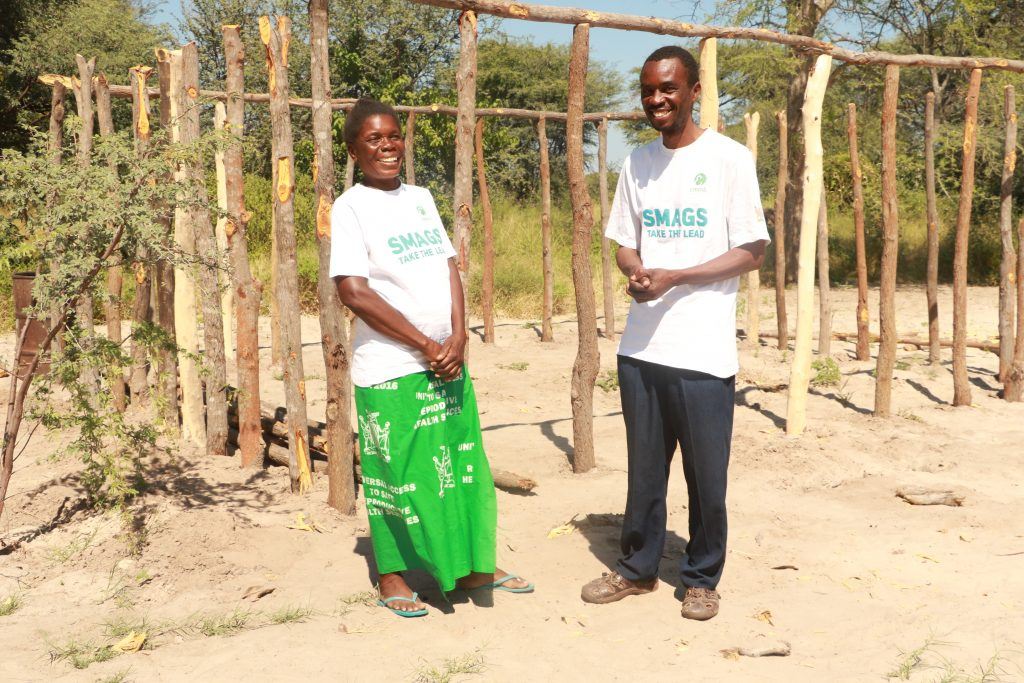
Innocent with fellow SMAG member, Ms Lumba Makuyu. together they serve vulnerable women and children in their community in Mwandi Zambia
Inspired to Make a Difference
What led you to become a community health worker?
“There were two important moments. The first was watching a relative deliver at home without a birth attendant. That had a big impact on me. The second and more intense experience happened years later. I remember the day vividly. A newborn baby was found, abandoned hours after his birth, delivered in the field and left to die. His cries were heard and he was taken to the nearest health care center for care. He survived, but life has been hard for this orphan.
I believe that mother was scared and felt helpless. I also believe that if she didn’t feel so alone, if she knew that there was help and support available – other options – that she may not have abandoned her baby. Community and friendship matter.
This is why I joined the Safe Motherhood Action Group (SMAG). The women and children in my community are among the most vulnerable. Distance from health facilities and poverty have a huge impact on their lives. Too many lives are lost. Saving the lives of a mother and a child is so important. I felt I had to be a part of the solution.”
As a CHW and SMAG member, Innocent works hard to identify all the women in his community who are pregnant in order to support them on their journey through pregnancy. He teaches them about healthy behaviors, including the types of foods to eat, what activities to avoid, and what to expect with regards to ‘normal’ side effects (e.g. nausea). He also highlights the types of signs not to ignore and when to seek medical support.
“From a SMAG perspective, as soon as we find out a woman is pregnant, we consider it a “problem.” We know and have seen the real dangers for pregnant women living so far from health facilities and medical care and so treating it like a problem is our way of making sure we are ready. If we think this way, we are proactive. We act instead of react and in a place like this it can mean the difference between life and death.
We talk to moms about what she should be eating to ensure she and the baby will be healthy. We also teach them about the “side effects” of being pregnant; the dizziness, nausea etc. We let them know it’s part of the process and not to be worried.
We also teach them about things they should not ignore, like bleeding or draining. We tell them to reach out to SMAG members or to go straight to the hospital if they experience these symptoms. We talk to them about the importance of seeking the care of a medical professional. It is also the way we try to discourage them from using herbal medicine or traditional remedies that too often compound the problems.”
Naomi is an 80+ year old woman (she didn’t know her age) – whose granddaughter starting bleeding while pregnant. She called on her SMAG and then they contacted others and together they got the help she needed
“If it wasn’t for SMAG I think she would have lost the baby…maybe worse – maybe she would lose her life. It was them who carried her. It was them who called the nurse and got the ambulance. It was them that helped save her life.” – 80-year-old Naomi whose granddaughter’s life was saved thanks to the action of the SMAGs
What is it like being a male SMAG member?
“You know, pregnancy is too often regarded as women’s work. I believe things are changing. I hope things are changing. We are trying to encourage men to get involved. Men have to see that we are a part of this journey – and it makes a big difference when fathers see themselves in that role. They become more active and the women feel less alone. It isn’t an easy transition but we are working towards it.
In fact, indunas – representatives of the local chief who work in the community, call all members of the community to a meeting where they introduce the community health workers and SMAG members and highlight the importance of their roles in saving the lives of all members in the community.
“I really wanted to know how to be a better husband and father. Now I participate more in the kitchen, bathing the young ones, and being more involved in their lives. It improves our relationships but more than that it means our children are happier and healthier!”
Innocent explains that he gets a bit of grief from other men (and women!) in his community because of his role in what are known as “women’s work.”
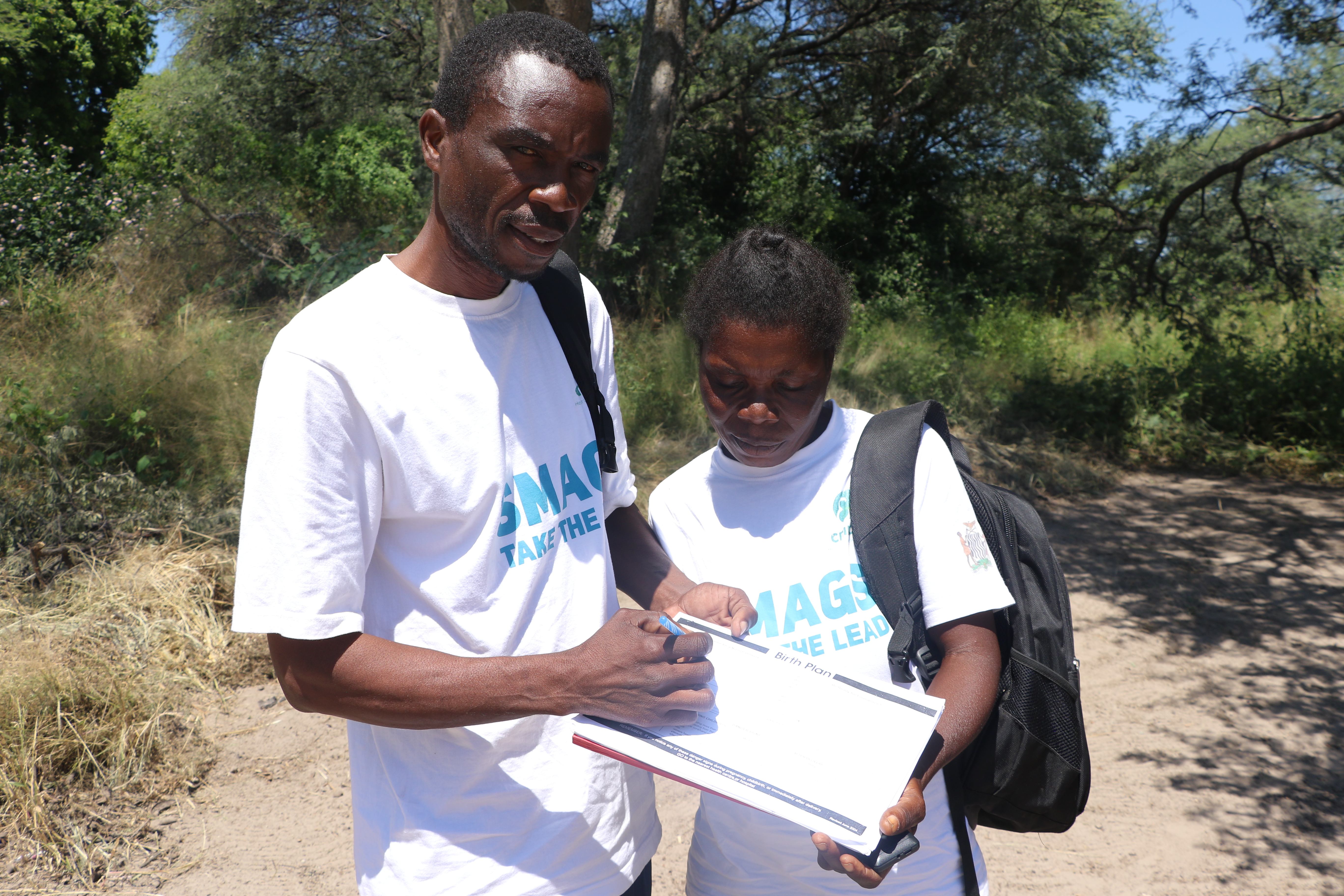
Innocent with another member of SMAG. They support each other so that they can offer the best help to mothers and children.
“When people see me helping around the house and with the children, they think my wife has given me herbal medicine. But I don’t care because my family is happy and healthy. CMMB is helping redefine the role of men in their families. It will take time but what an important job!”
Innocent said that he spends a lot of time with fathers in his community, highlighting the benefits that their involvement has in their family’s overall health and the unexpected joy that results from this participation.
I want to help train more community health workers
